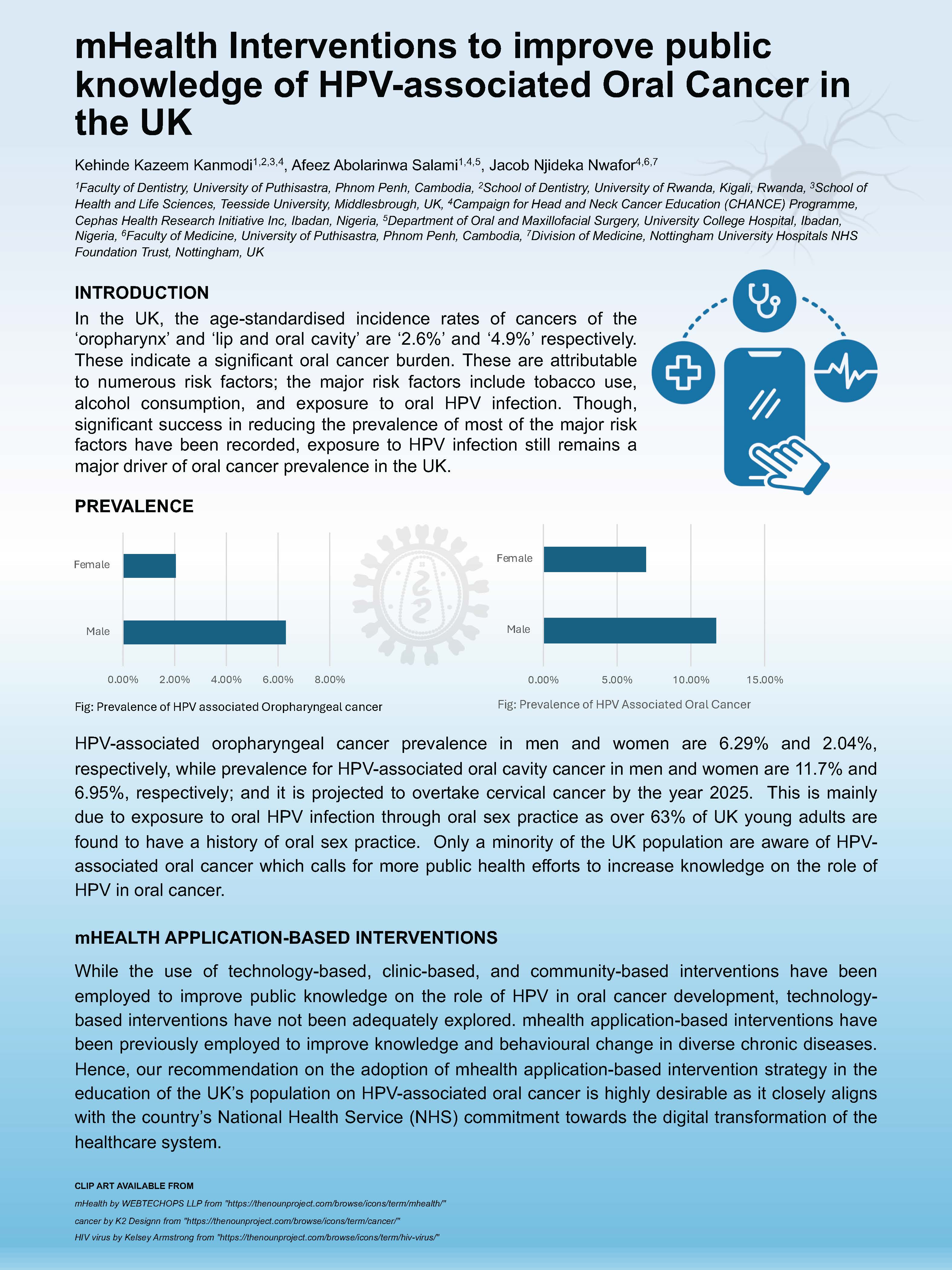Mhealth interventions to improve public knowledge of HPV-associated oral cancer in the UK
DOI:
https://doi.org/10.51496/jogm.v4.S1.173Keywords:
Human papillomavirus, HPV, Oral cancer, mHealth, Education, UKAbstract
In the UK, the age-standardised incidence rates of cancers of the ‘oropharynx’
and ‘lip and oral cavity’ are ‘2.6%’ and ‘4.9%’ respectively.
These indicate a significant oral cancer burden. These are attributable to
numerous risk factors; the major risk factors include tobacco use, alcohol
consumption, and exposure to oral HPV infection. Though, significant
success in reducing the prevalence of most of the major risk factors
has been recorded, exposure to HPV infection still remains a major
driver of oral cancer prevalence in the UK. HPV-associated oropharyngeal
cancer prevalence in men and women is 6.29 and 2.04%, respectively,
while prevalence for HPV-associated oral cavity cancer in men
and women is 11.7 and 6.95%, respectively; and it is projected to overtake
cervical cancer by the year 2025. This is mainly due to exposure to
oral HPV infection through oral sex practice as over 63% of UK young
adults are found to have a history of oral sex practice. Only a minority
of the UK population is aware of HPV-associated oral cancer which
calls for more public health efforts to increase knowledge on the role of
HPV in oral cancer. While the use of technology-based, clinic-based,
and community-based interventions has been employed to improve
public knowledge on the role of HPV in oral cancer development, technology-
based interventions have not been adequately explored. Mhealth
application-based interventions have been previously employed to
improve knowledge and behavioural change in diverse chronic diseases.
Hence, our recommendation on the adoption of Mhealth application-
based intervention strategy in the education of the UK’s population
on HPV-associated oral cancer is highly desirable as it closely
aligns with the country’s National Health Service (NHS) commitment
towards the digital transformation of the healthcare system.
Metrics

Published
How to Cite
Issue
Section
Categories
License
Copyright (c) 2024 Kehinde Kazeem Kanmodi, Afeez Abolarinwa Salami, Jacob Njideka Nwafor

This work is licensed under a Creative Commons Attribution 4.0 International License.






 Journal of Global Medicine | Editor-in-Chief: Olufunso Adedeji. MBBS, MD, FRCSEd.
Journal of Global Medicine | Editor-in-Chief: Olufunso Adedeji. MBBS, MD, FRCSEd. 